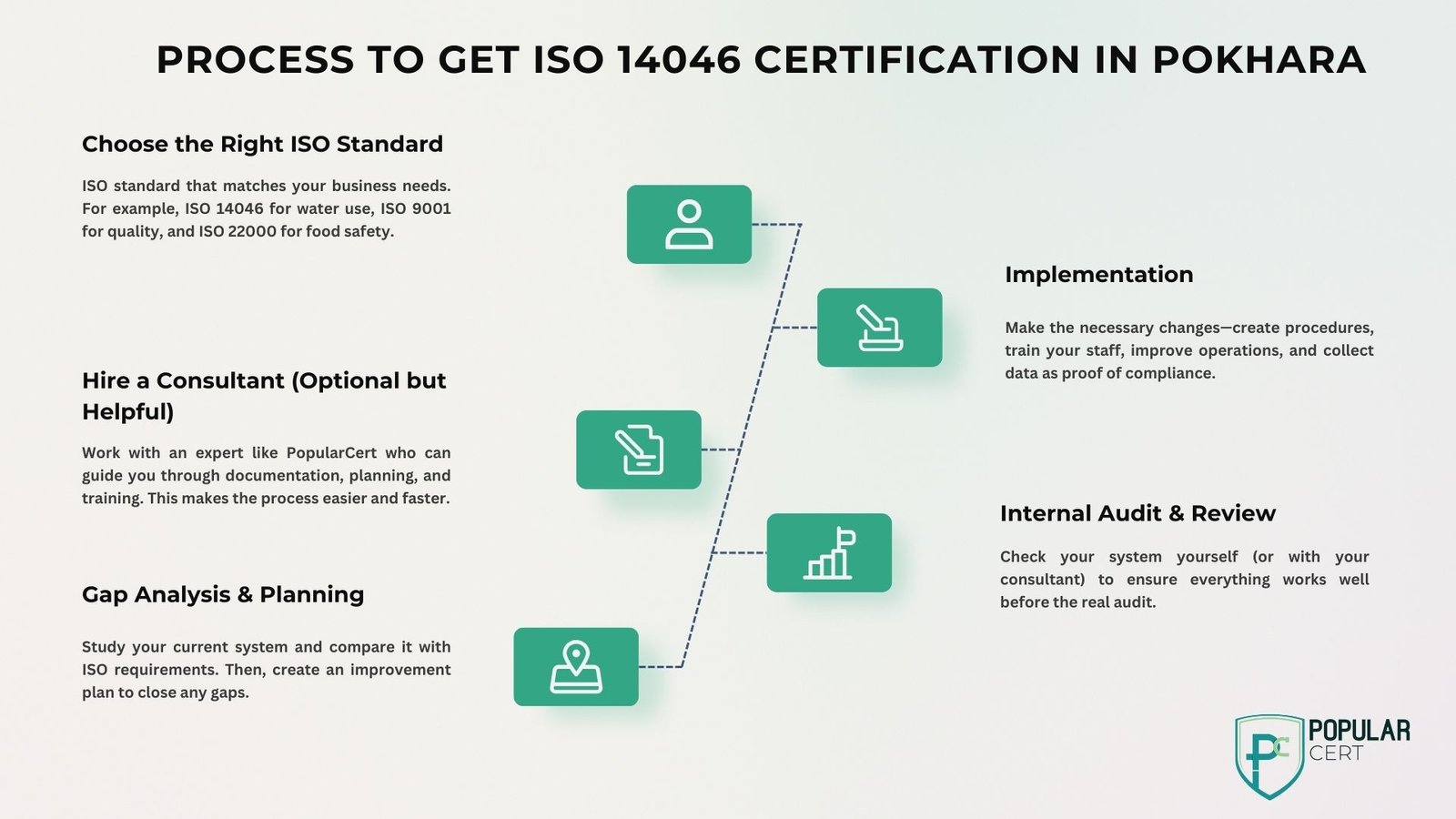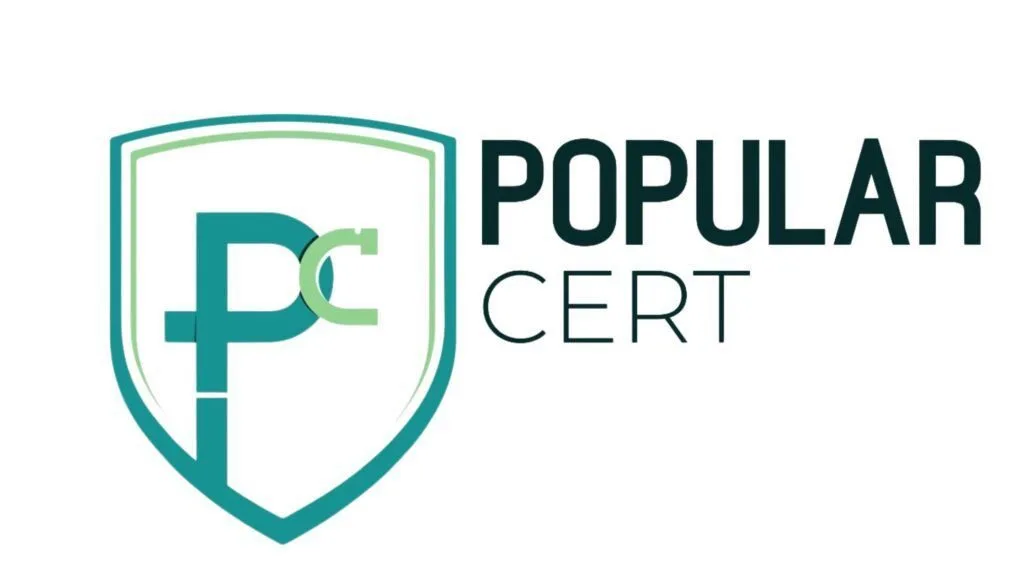Eco-Friendly Tourism in Pokhara Starts with ISO 14046 Water Footprint Standards

Pokhara’s situation has both positive and negative aspects. As a city in Nepal, It offers wide-ranging natural attractions, calm lakes, and spectacular mountains. It also receives a high rate of tourism which brings with it it’s own set of environmental problems. This creates the imbalance of having more tourists and less natural reserves. It appears that the city lacks proper attention when it comes to implementing sustainable tourism such as the ISO 14046 Water Footprint which focuses on the impact tourism has on water usage.
In this passage we will talk about how Pokhara can achieve sustainable tourism using the Water Footprint Standards of ISO 14046. Such practices would ensure the city retains its ability to attract diverse tourists and travelers while protecting its precious natural resources.
What is ISO 14046?
ISO 14046:2014 sets a specific system to evaluate the water footprint of any given product, process, or organization. This standard helps entities determine what measures can be taken for effective water management by evaluating water usage and its impacts through the lens of the water footprint. With regard to tourism, the application of ISO 14046 makes certain that water resources are conserved even as the industry expands.
The Significance of ISO Certification in Pokhara's Tourism Sector
Obtaining ISO Certification In Pokhara and in particular with regard to ISO 14046 shows concern for the environment. This certification increases the reputation of tourism operators, thus benefiting the more environmentally responsible sector of travelers. With these, Pokhara’s tourism bucket can demonstrate that they care about international standards of water management and hence prove that they are leaders of sustainable tourism practices.
Who Can Benefit from ISO 14046 in the Tourism Sector?
The standard can be implemented across all the resorts and businesses in Pokhara. This is how different groups can benefit:
- Hotels & Resorts: Track water expenditure in laundries, kitchen swimming pools and other areas. Decrease expenditure and wastage.
- Restaurants & Cafes: Monitor water usage during dishwashing, cooking and cleaning. Market themselves as eco-friendly to attract and encourage green customers.
- Travel Agencies & Tour Guides: Develop curriculum and plan water conservation and education field trips.
- Trekking Lodges & Camps: Control water usage in rural places with scarce supplies. Use less and protect nature.
- Locally Managed Tourism Development Capacity (LMTDC): Support establishment of water conservation objectives within a given jurisdiction.
- Boating and Water Sports Operators: Reduce leakage of fuels and encourage clean water swimming and other activities.
Types Of Certification
- ISO Certification
- ISO 9001 Certification
- ISO 14001 Certification
- ISO 45001 Certification
- ISO 22000 Certification
- ISO 27001 Certification
- ISO 17025 Certification
- ISO 13485 Certification
- ISO 20000-1 Certification
- ISO 22301 Certification
- ISO 50001 Certification
- ISO 37001 Certification
- IATF 16949 Certification
- ISO 29001 Certification
- ISO 31000 Certification
- ISO 20121 Certification
- ISO 10002 Certification
- ISO 41001 Certification
Get Free Consultation
Our Clients


















Implementing ISO 14046 in Tourism Businesses That Use It
Integrating ISO 14046 doesn’t have to be challenging. Here’s a straightforward plan: five steps to follow.
Step 1: Know How To Manage Water
- Make a record of
- Daily water intake.
- What type of water is it? (City, well, bottled)
- Location of wastewater, where does it go?
Step 2: Assess Water Footprint: Consult PopularCert to assist you with works concerning assessment of water footprint.
Step 3: Set Goals on Reducing Use
- Set goals for maximum cuts:
- Devices (taps, showers) with low water flow.
- Clearing coursework by reusing water from the laundry.
- Stopping leaks as well as fixing broken pipes.
Step 4: Educational Training for Employees: Create a clean, safe and water-efficient working environment for every employee.
Step 5: Get ISO 14046 Certification: Upon the establishment of your system, apply for certification to show your reputation.
Real Ideas for Eco-Friendly Tourism in Pokhara
Companies in the tourism sector can make strides toward conserving water:
- Biodegradable soaps and shampoos must be used: Reduce water pollution in hotels and on treks
- Water-saving fixtures must be installed: In hostels and homestays
- Refundable Water Stations: To prevent plastic bottle waste.
- Use dry cleaning or laundry scheduling: Reduce washing in hotels
- Kitchen staff should be trained: On water savings with washing.
- Lakeshore littering should be organized: To increase awareness of the lakes
- Tourists should be educated through signs/posters: In hotel rooms, boats, and trekking stations.
Role of Government and Local Authorities
The tourism board of Gandaki Province and Pokhara Metropolitan City can also do a great deal by:
- Encouraging the adoption of ISO 14046 in tourism businesses
- Conducting water footprint workshops
- Providing rewards for eco-friendly lodges
- Integrating water governance in tourism policies
- Fostering collaboration between the private and public sectors in clean water initiatives
Process to Get ISO 14046 Certification In Pokhara

How PopularCert Can Help Your Business
PopularCert is one of the helpful certifying agencies for businesses, tourism operators and even local governments which offers ISO certification services. PopularCert takes in customers wanting assistance with adoption of standards like ISO 14046. Whether you are a small guesthouse in Pokhara or a large operating eco-resort, PopularCert provides all levels of assistance. They provide first understanding the implications of ISO 14046 on their operations. A comprehensive water footprint analysis is undertaken that signifies the areas of depletion or excessive use which marks overuse or wastage.
With the identifying overuse or wastage provided, PopularCert aids in the implementation of practical water saving technologies, waste reduction training, and sustainable waste management personnel for preemptive measures. PopularCert assists in the compilation of necessary documents and procedures to comply with ISO standards. To guarantee success, PopularCert helps during the certification audit. Beyond certification, there is constant training and awareness on water and culture sustainability in fostering a sustainable organization.
With these changes, PopularCert clients are recognized not just for transforming into low waste enterprises, but also for championing initiatives towards Nepal’s greener vision in responsible tourism and international ecological movements.
GET A FREE CONSULTATION NOW
FAQ
Is ISO 14046 only for large companies?
It also applies to small guesthouses, cafés and lodges.
Is the cost of implementing the measure high?
If it is high, then it’s only with respect to the size of your business, but the savings from reduced water expenses typically pay for it.
Will there be any noticeable change from the guests’ point of view?
They will notice changes for the better! A lot of tourists would like to stay in places that are sensitive to the eco system.
Is it only about increasing water use efficiency?
There is a focus on the reduction of pollution and enhancement of water quality as well.
Can it really help serve the case of Pokhara?
If more people from the business sector and the government start adopting ISO 14046, then Pokhara can stand out as a model region for sustainable tourism in South Asia.
